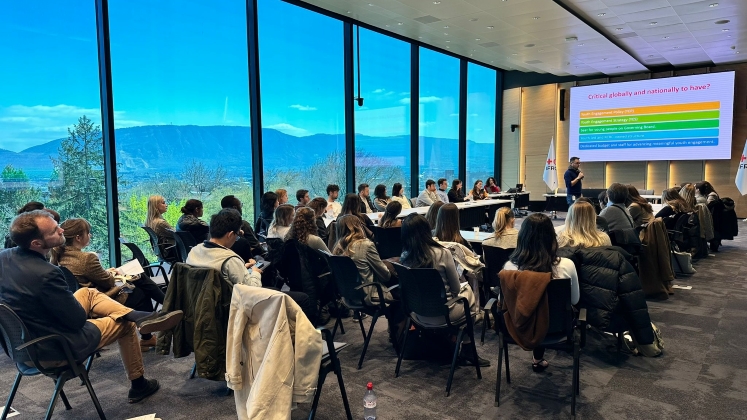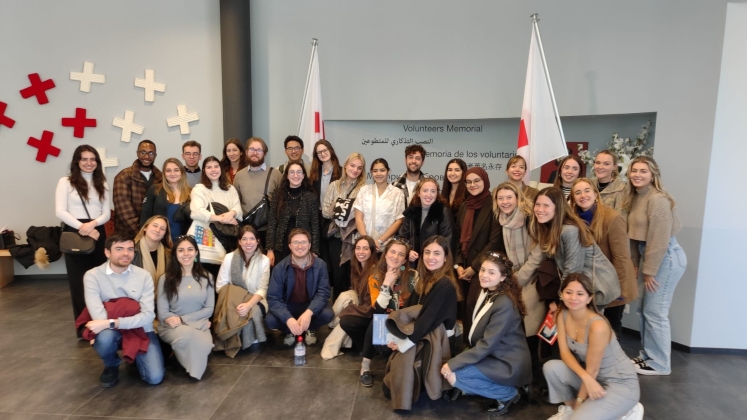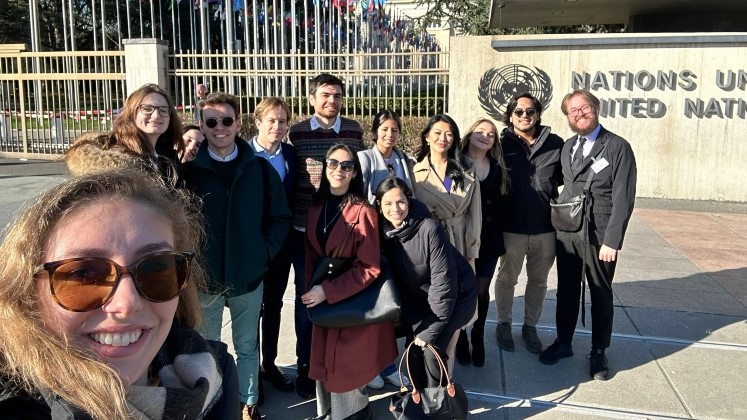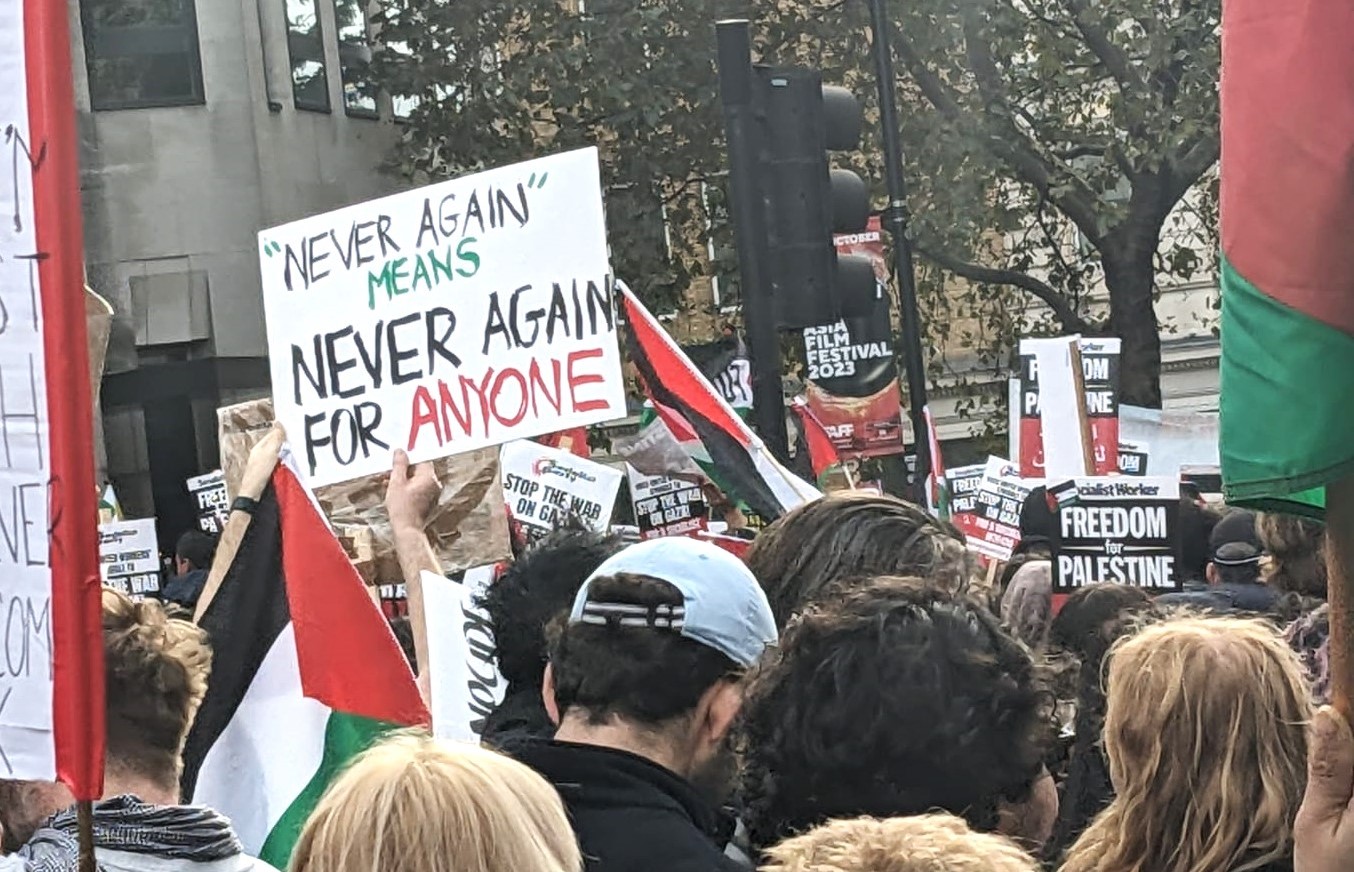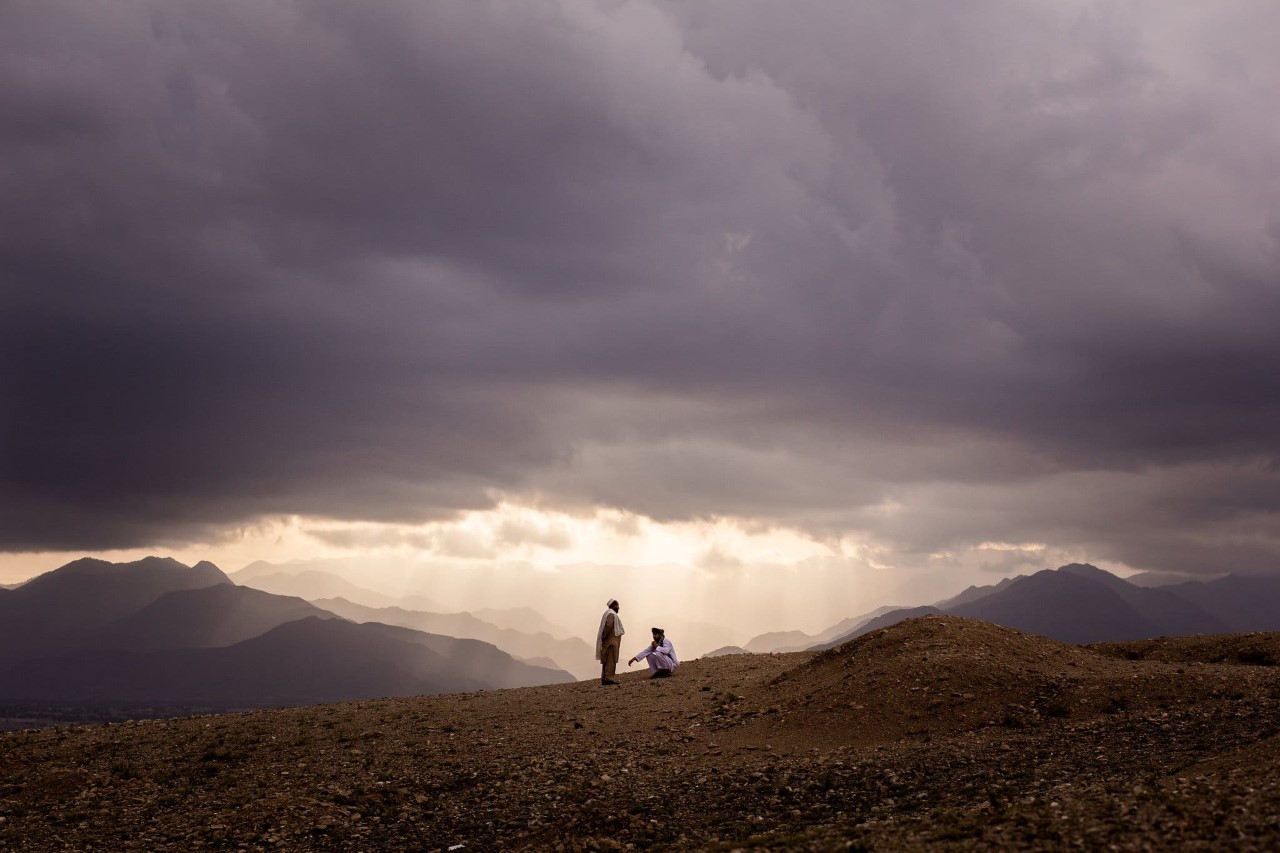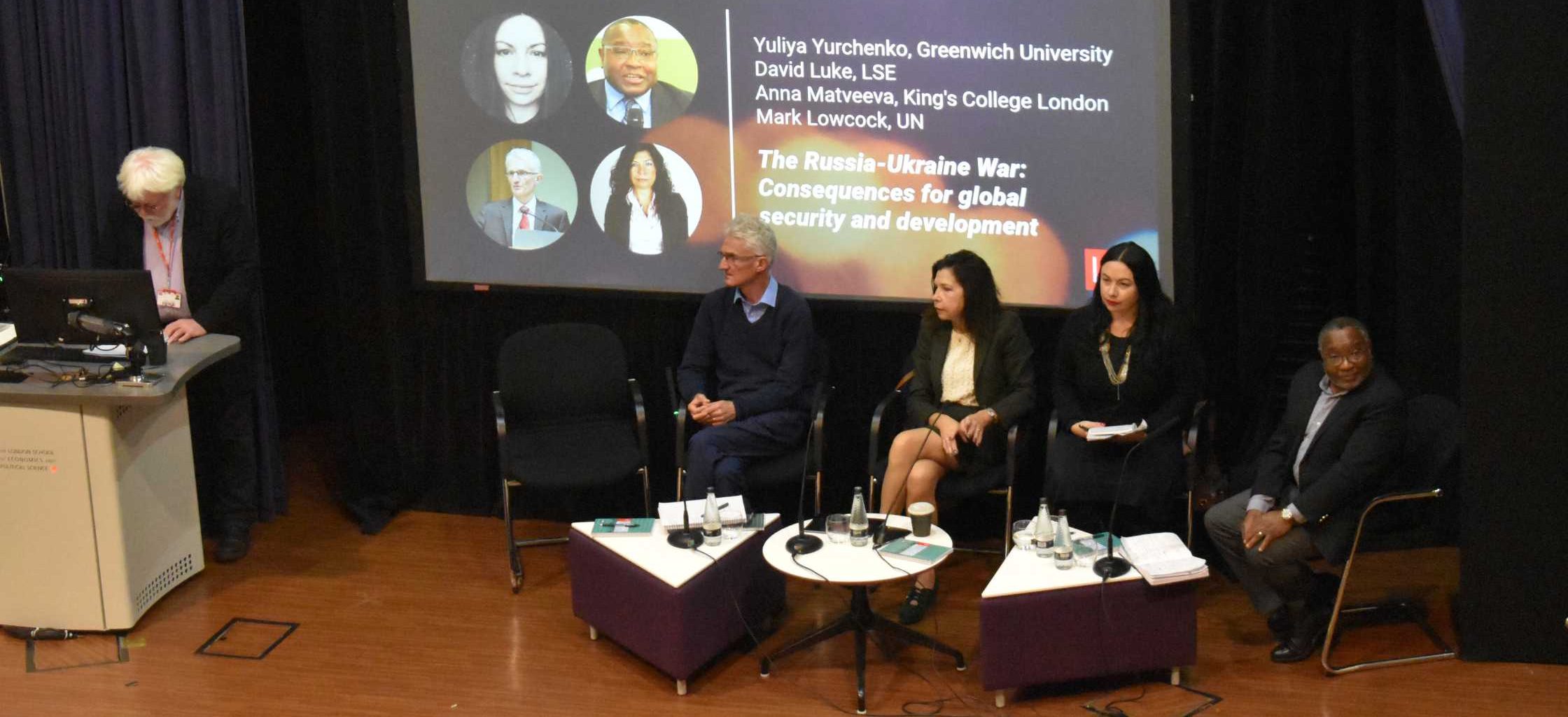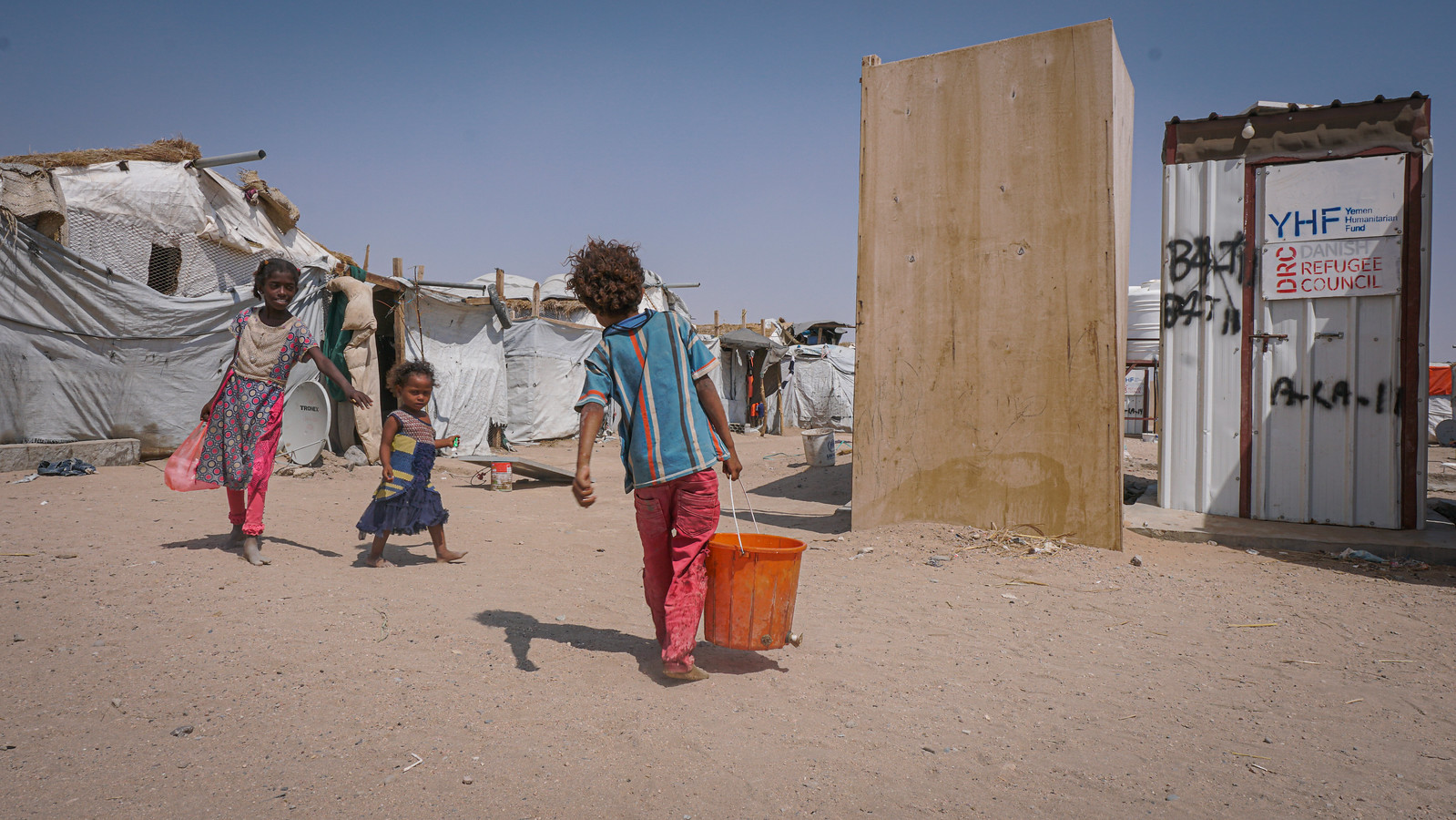Part-time student on the MSc in International Development and Humanitarian Emergencies (IDHE) Alice Storniolo shares her experience of last month’s trip to Geneva, a global centre of humanitarianism and peacebuilding, where students on the programme had a chance to visit key humanitarian organisations and meet professionals from the sector.
Day one: UNHCR and Sphere
Our trip started with a visit to the United Nations High Commissioner for Refugees (UNHCR), where we listened to two wonderful presentations which provided us with an overview of UNHCR programmes and also explained how the agency operates, briefly also touching the cluster system. After the presentations, we were able to ask questions to two UNHCR representatives about their personal experiences working with UNHCR in general, but also in specific fieldwork situations.
In the afternoon we continued with a presentation at Sphere. We had interesting conversations with Aninia Nadig, who gave us an overview of Sphere’s work, the creation of the Sphere standards, and the recruitment process. This session was particularly active, as we were given the opportunity of winning a Sphere Handbook for the person who gave the best solution on how to measure Sphere’s impact in the world.
Day two: UNEP, UNDP, IFRC, IFRC museum, Geneva social
Our second day in Geneva was filled with presentations and visits. We started the day with a presentation on UN Environment Programme and the Geneva Environment Network. Immediately after, we continued our day with a discussion on UN Development Programme (UNDP), presented by LSE alumnus Joos van der Zwan, who also gave us interesting pointers on how to start a career in the humanitarian sector and in particular with UNDP.
Our next destination was the International Federation of Red Cross and Red Crescent (IFRC), where we were first able to eat a delicious lunch in their cafeteria and then had an interesting conversation on education, youth and engagement in development. During the session, we were also able to ask many questions, in particular regarding the recruitment process.
Later we visited the IFRC museum with an interactive tour of the museum and a presentation on the ‘impact of digitalisation on conflicts, humanitarian organisation and people’ by Philippe Marc Stoll and Catherina Rosa Zazzini.
We wrapped up the day with the social “Invite your contacts” at La Taproom where we were able to network in the friendly atmosphere of the bar.
Day three: ICVA
After checking out from our hotels, Airbnbs and hostels, we met for our final visit of the programme at the International Council of Voluntary Agencies (ICVA). There, we were first given an overview of their work and then had the chance to ask many questions and network with the speakers at the end of the session.
In the afternoon we split up – some people headed for the airport to continue their travel around Europe, others headed back to London, and some stayed in Geneva to visit the city. This trip was a wonderful opportunity to not only network and get more resources for dissertations, but also to gain first-hand insight into organisations and sectors in the humanitarian field.
The views expressed in this post are those of the author and in no way reflect those of the International Development LSE blog or the London School of Economics and Political Science.
Photo credits: Alice Storniolo


